Further reading
- Top 20 PSA tools for resource management and project management
- Strategies for improving your project's profit margin
- How PSA helps drive project profitability
- 5 key benefits of adopting PSA software for professional services firms
5 essential elements of project management for professional services
Whether it is to launch a new product, deliver complex services, or optimize operational processes, you need project management to achieve your goals. Without it, you're looking at a chaotic mess of confusion, clueless employees, and unhappy customers. Streamlined project management extends far beyond completing tasks on time. It's about balancing resources, setting timelines, managing risks, fostering collaboration, and ensuring that every project aligns with the overarching business objectives.
Today, we delve into five critical components that lay the foundation for successful project management. In this article, we cover:
- What is project planning?
- Why is project planning essential?
- The connection between the project framework and project management
- 5 essential elements of project management
- How Rocketlane can help you balance all project planning and management essentials
What is project planning?
Project planning is a crucial component of project management that involves setting clear objectives, defining deliverables, creating a timeline, allocating resources, and assigning tasks to ensure successful project completion. It lays the foundation for the entire project and sets the direction for all subsequent activities. At its core, project planning helps organizations streamline their operations and achieve project goals efficiently.
By engaging in project management planning, teams can break down complex projects into smaller, more manageable tasks. This allows them to determine the necessary steps and dependencies required to achieve each milestone. With a well-designed project plan in place, teams can identify potential risks, establish contingency plans, and allocate resources strategically.
Project planning also aids in effective time management. By identifying critical activities and their associated timelines, project managers can create a realistic project schedule that accounts for dependencies, milestones, and deadlines. This helps teams stay organized, prioritize tasks, and monitor progress throughout the project lifecycle.
Ultimately, project management planning is essential for successful project execution. It provides teams with a roadmap that outlines the project's goals, deliverables, timelines, and resource allocations. This in-depth planning process helps minimize risks, maintain project scope, and ensure project outcomes align with stakeholders' expectations. With proper project planning templates, organizations can improve efficiency, maximize productivity, and achieve successful project outcomes.
Why is project planning essential?
Project planning is an essential part of any endeavor, no matter the size or scale. Whether it's a simple task or a complex project, having a well-thought-out plan is the key to success. So why is project planning so important?
Foremost, project planning helps with project management. It allows you to define the project's objectives, outline the tasks that need to be completed, and set realistic deadlines and budgets. Without a plan in place, it's easy for things to get disorganized, leading to missed deadlines, overspending, and a lack of direction.
Project planning is also crucial for enhancing business operations. By carefully considering and mapping out each step of the project, you can identify potential risks and challenges. This allows you to devise strategies to overcome these obstacles and mitigate their impact on your business. Additionally, it helps you allocate resources effectively, ensuring that you have everything you need to complete the project at the right time.
Another benefit of project planning is that it encourages collaboration and communication among team members. With a clear plan in place, everyone involved in the project can understand their roles and responsibilities. This fosters a sense of accountability and teamwork, resulting in improved efficiency and productivity.
In other words, project planning is essential because it helps with project management, enhances business operations, and promotes collaboration.
Understanding project framework and project management
Understanding the differences between project management and project framework is crucial for successful project execution. While project management focuses on the actual implementation, the project framework is the structure that determines how project activities are carried out.
Project framework
A project framework acts as the backbone for successful project management. Essentially, it is a predefined structure that guides the entire project lifecycle, from initiation to completion. It outlines the key elements and processes required for an effective project, including goals, roles and responsibilities, timelines, and communication channels.
By implementing a project framework, teams can establish clarity, promote consistency, and enhance collaboration. It helps allocate resources efficiently, ensures adherence to budget, and mitigates risks. Whether you're using traditional methodologies like Waterfall or agile approaches like Scrum, a project framework provides a common language and roadmap for all stakeholders.
Project management
Project management involves the application of knowledge, skills, tools, and techniques to meet project requirements and achieve desired outcomes. A project manager plays a pivotal role in effectively planning, executing, monitoring, and controlling all aspects of a project. They are responsible for setting project goals, defining tasks, assigning resources, and managing budgets and timelines.
Project management involves effective communication and collaboration with stakeholders, as well as risk management and problem-solving. By employing proven project management methodologies and frameworks, organizations can ensure efficient project delivery and maximize their chances of success.
5 essential elements of project management
The importance of project management lies in its ability to provide structure and direction, enabling teams to work collaboratively towards a common objective. There are essential elements that make project management effective. It helps maximize productivity, mitigate risks, and ultimately deliver successful projects.
Here are five essential elements of project management to ensure a successful project implementation.
1. Project scope management
Project scope management involves defining and controlling what is included in a project, as well as what is not. This helps to prevent scope creep and ensure that the project stays within its allocated resources and timeline.
The first step in scope management is to define project objectives, deliverables, and requirements clearly. This will provide a foundation for setting boundaries and making decisions throughout the project. Additionally, continuous monitoring and control are necessary to ensure that you evaluate and manage any changes or requests properly to keep the project on track.
2. Project time management
Project time management entails the planning, scheduling, and controlling of project activities to ensure timely completion. Effective time management allows project managers to allocate resources efficiently, meet deadlines, and deliver high-quality results.
To achieve this, it is essential to establish a clear and flexible project schedule that outlines all tasks and their respective durations. Project managers should also regularly track progress and make necessary adjustments to stay on track.
Besides timely project completion, time management enables teams to identify and address potential risks and issues early on, leading to improved efficiency and outcomes.
3. Project cost management
Project cost management is a crucial element of effective project management. It involves estimating, budgeting, and controlling costs throughout the project lifecycle. By properly managing costs, project managers can ensure that their projects stay within budget and avoid financial surprises.
The first step in project cost management is accurate cost estimation. This involves identifying and documenting all project costs, including labor, materials, equipment, and other resources. A realistic budget is then created based on these estimates.
Once the project is underway, project managers must monitor and control costs to prevent budget overruns. This includes tracking actual costs against the budget, identifying any deviations, and taking corrective actions if necessary.
By incorporating project cost management into their overall project management strategy, organizations can achieve successful outcomes by ensuring financial stability and efficiency in their projects.
4. Project quality management
Project quality management ensures that projects achieve their objectives while maintaining high standards of quality. By following a well-defined quality management process, project teams can identify, assess, and prioritize quality requirements. This includes defining quality criteria, creating quality plans, and implementing quality assurance and control measures throughout the project lifecycle.
Besides an impact on the final deliverables, project quality management increases customer satisfaction and reduces the likelihood of rework or costly errors.
5. Project risk management
Project risk management involves identifying, assessing, and mitigating potential risks that could hinder project progress. By proactively addressing risks, project managers can prevent costly setbacks and increase the chances of meeting project objectives.
Risk management helps identify potential obstacles, such as resource limitations, technical challenges, or unforeseen external factors that could impact project outcomes. Through effective risk management, project managers can develop contingency plans, allocate resources wisely, and prioritize activities to minimize potential disruption.
It ensures that projects are executed with a clear understanding of potential risks and the necessary steps to mitigate them, ultimately leading to successful project completion.
Ace project management with Rocketlane
Your search for the perfect project management software stops here. Rocketlane's PSA software is the best choice for project management because it enhances project execution and delivery through the integration of automation and consistency.
With tools like Gantt charts, Kanban boards, real-time notifications, and automated status updates, project tracking becomes streamlined and efficient.
Here are some of Rocketlane's compelling capabilities that make it an easy choice for your project management needs:
Streamlined project management: With Rocketlane, your team transitions from mere task management to strategic project delivery, for improved visibility and collaboration in every project. Leverage tools such as Gantt charts, Kanban boards, real-time notifications, and automated status updates to streamline project tracking
Resource and capacity planning: Rocketlane enhances resource and capacity planning with automation, real-time visibility, and accurate forecasting to optimize utilization and prevent burnout. Gain insights into team capacity, prevent overallocation, and align resources with project demand to improve efficiency and profitability.
Budget and financial management: Attain cost-effectiveness by meticulously monitoring and managing project expenses across an unlimited number of projects. Rely on Rocketlane's live budget tracker to maintain project alignment with budgetary constraints.
Data-driven decision-making: Harness the power of data insights to optimize your project portfolio, pinpoint bottlenecks, and unearth previously undiscovered opportunities. This empowers quicker, more informed decision-making.
Easier client collaboration: Rocketlane offers white-labeled client portals, project chat functionality, and advanced options for file collaboration, making client engagement effortless and highly productive.
Rocketlane: Your go-to project management tool
Rocketlane offers modern project management and automation capabilities that enhance project execution and delivery every step of the way, making it the best tool for project management. Optimize resource planning by automating processes, achieving pinpoint accuracy in forecasting, and maximizing resource utilization. With Rocketlane, you can be sure that the right resources are available at the right time for your projects. It also provides a live budget tracker to monitor and manage project expenses across multiple projects, ensuring alignment with budgetary constraints. With data-driven insights, you can make informed decisions that optimize your project portfolio, identify bottlenecks, and uncover new opportunities.
Ready to take your project management to the next level?
{{demo}}
FAQs
1. What is project scope in project management?
Project scope refers to the specific goals, objectives, deliverables, and tasks that must be accomplished within a project.
2. How is a project timeline determined?
A project timeline is determined by identifying the tasks, estimating durations, and sequencing the tasks in a logical order to determine the start and end dates for each task.
3. What is a project budget?
A project budget is a financial estimate that outlines the costs required to complete the project, including resources, equipment, materials, and any other expenses.
4. How is risk management applied in project management?
Risk management in project management involves identifying potential risks, analyzing their impact and likelihood, developing strategies to mitigate or minimize risks, and monitoring and controlling risks throughout the project life cycle.
5. Who are the project stakeholders?
Project stakeholders are individuals or groups with an interest or influence in the project, such as clients, executives, team members, suppliers, or regulatory bodies.








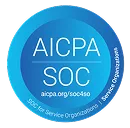
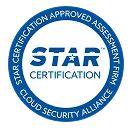
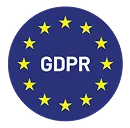
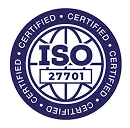









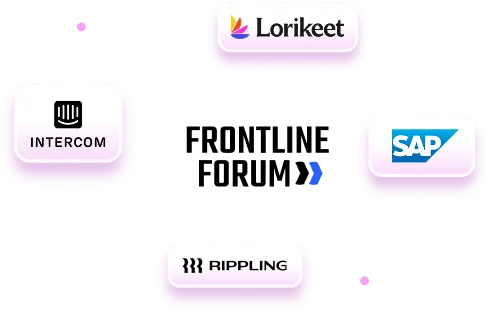
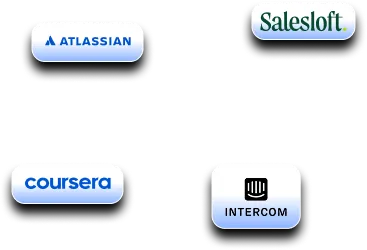


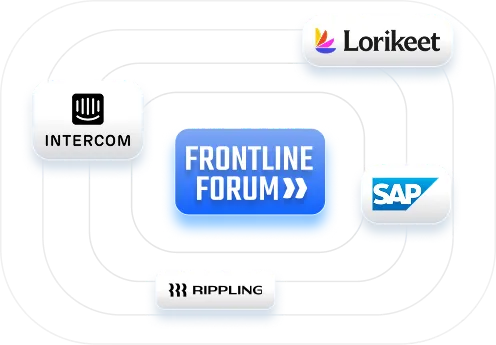
.webp)